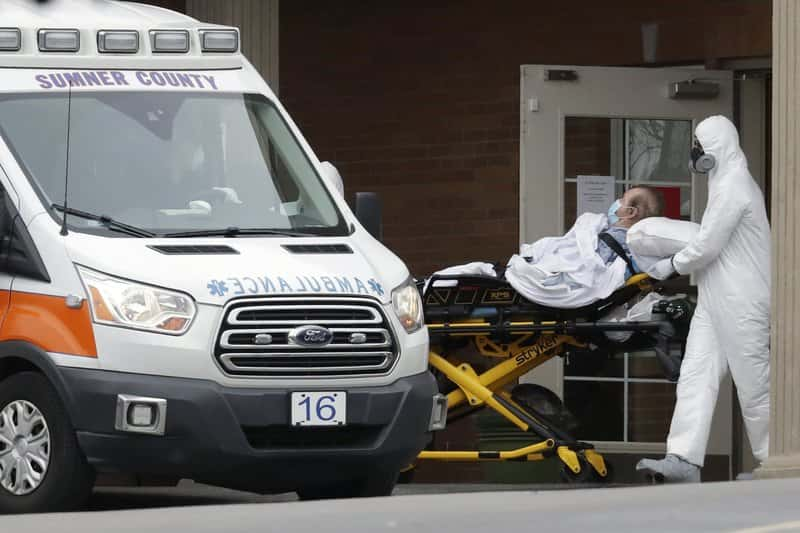
Nursing homes across the country have been in lockdown for weeks under federal orders to protect their frail, elderly residents from coronavirus, but a wave of deadly outbreaks nearly every day since suggests that the measures including a ban on visits and daily health screenings of staffers either came too late or were not rigorous enough.
Recent outbreaks in Tennessee, New Jersey, Ohio, West Virginia and Maryland have pushed the death toll at the nation’s nursing homes to at least 450 and highlight the biggest gap: Screenings of doctors, nurses, aides and other workers do not involve actual testing but the taking of temperatures or asking health questions that still allow infected, asymptomatic people to slip through.
“It’s still been like Swiss cheese with people coming in and out of there, and thus you’ve got these explosions in senior facilities,” said John BaRoss of Long Valley, New Jersey, who recently pulled his 85-year-old mother out of an assisted-living center out of fear of infection.
After an outbreak of 100 infections and four deaths at the Gallatin Center for Rehabilitation and Healing outside Nashville, Tennessee — where the National Guard was called in to help evacuate the facility — Sumner County Mayor Anthony Holt blamed staff members who came to work despite showing symptoms for COVID-19 and “exposed a lot of patients.”
“Things got out of hand,” Holt told the Associated Press. “Once employees became symptomatic, they should have asked them to go home immediately and called the health department. I don’t think that occurred.”
After an outbreak near Dayton, Ohio, killed six people and infected nearly 50 at a pair of nursing homes less than 10 miles apart, health officials began scrutinizing medical specialists such as phlebotomists and respiratory therapists who work in multiple facilities a day. One such health worker who visited both homes tested positive for COVID-19.
In Maryland, Gov. Larry Hogan said an outbreak that spread like “wildfire” at a Mount Airy nursing home, killing five and infecting 77, apparently began with an asymptomatic health worker who made it past a temperature check screening and “infected the population.”
Some relatives of those at the Sundale nursing home in Morgantown, West Virginia, where 29 residents and staff have tested positive, say more should have been done to keep coronavirus out before the federal restrictions took hold in mid-March.
“The day before the shutdown, we just walked in wherever. There was no sign-in. There was nothing,’ said Courtney Templeton about her last visit to her 69-year-old mother.
Templeton also faults the home for not testing residents fast enough and not keeping healthy ones separate from those just back from a nearby hospital showing COVID-19 symptoms, including her mother’s roommate.
“She came back coughing and had a fever,” Templeton said of a visit two weeks ago, after which she began begging the home to protect her mother. “Can’t you keep the incoming patients separate? Can’t you keep them quarantined for 14 days?”
Last week, Templeton got word both the roommate and her mom had the disease.